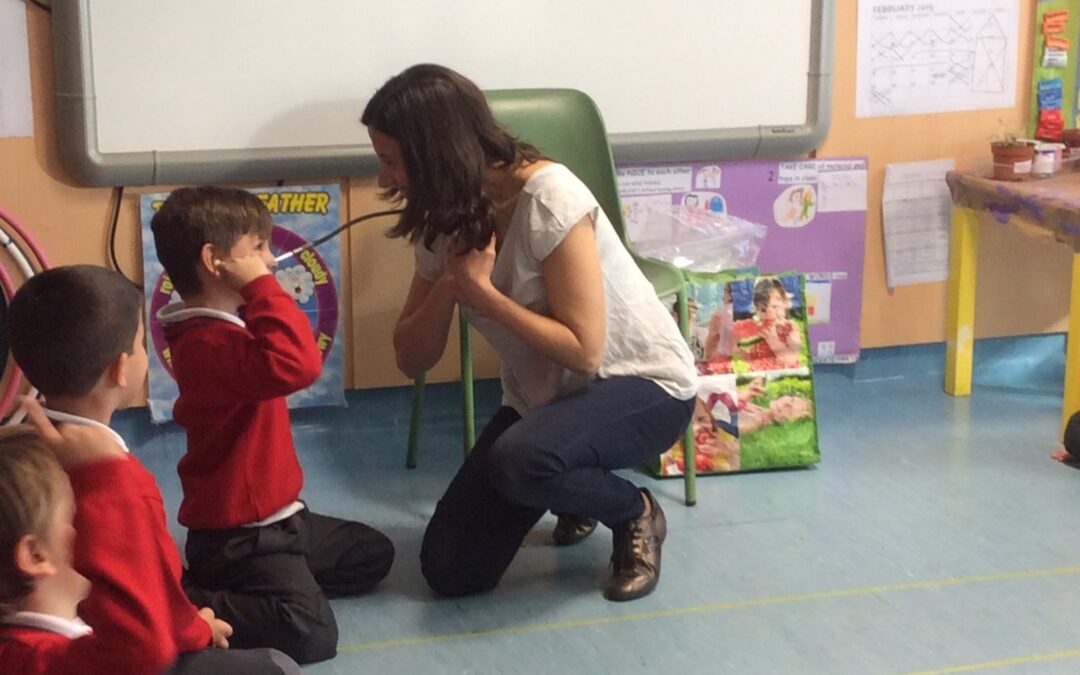Play is fundamental in all stages of children's growth because of the influence it can have on their cognitive and emotional development. With activities such as symbolic play, children are able to better develop their skills and form an image of the outside world.
Symbolic play allows children to continually move from the real to the imaginary by imitating real life situations. As a result, they gain a clearer vision of what the world is like by stimulating their social skills, empathy and use of language.
What is symbolic play?
Symbolic play is any spontaneous activity in which children use their mental capacity to recreate a scenario for entertainment. For example, we can observe how children turn a cardboard box into a pirate ship or a broom into a horse. Also the symbolic representation of more everyday activities such as pretending to be fathers, mothers or other real characters.
This activity allows the implementation of behaviors learned through observation, in addition to stimulating the learning of new ways of perceiving the world. At the same time, it stimulates the activation of social-emotional skills and competencies, the expression of feelings and the maturation process of children.
At what age to develop it?
Generally, symbolic play begins to develop at the age of two, although, of course, it all depends on the psychological maturity of each child. At this age, the little ones are limited to reproducing the daily life activities of adults.
However, as their imagination, language and ability to represent situations are consolidated, children are able to create increasingly complex scenarios.
In slightly older children, symbolic play changes from an individual activity to a socialization process in which children are able to establish a common goal and even certain rules of the game. Normally, this change occurs at 4 or 5 years of age when the child already has all the psychological tools to share his or her symbolic perception with other children.
Benefits of symbolic play
As we have mentioned, the use of symbolic play is of great importance during children's growth. This type of role-playing brings great benefits to the development of children's intellectual, social, physical and psychological functions.
- Encourages the acquisition of new behaviors.
- Stimulates the learning of social competencies and skills such as cooperation and teamwork.
- Encourages creativity and imagination.
- It helps to externalize feelings and emotions such as fears, anger, anguish or sadness in an appropriate way.
- Expand vocabulary.
- It facilitates the knowledge and mastery of their own body.
- Stimulates curiosity.
- It contributes to the knowledge of the environment and how things work.
Ideas to encourage symbolic play
After knowing the importance and benefits of symbolic play, as parents and educators, it is our responsibility to encourage this activity to promote all these benefits in children, allowing them to recreate different situations and characters with our supervision and help.
Let's play with them
Playing together is a perfect option, and by everyone we also mean the parents. Don't miss the opportunity to immerse yourself in the immense world of fantasy that your child can create.
Play fireman, pretend you are a pirate or simply pretend to eat a delicious plasticine pizza. Enjoy the moment and, above all, try to make the situation as close to reality as possible.
Don't forget role-playing
Contribute to your child's symbolic construction with items that will aid in his or her recreation. Use an equipped kitchenette, a fireman's outfit or a doctor's coat.
You don't have to spend too much on that, just use recyclable materials and some imagination to create them at home. This way, you'll have another fun activity to spend time with your child.
Expands its repertoire of characters and situations
It is normal that, if your child is still young, he has a limited number of characters and situations to imitate. A great idea to encourage their symbolic play is to propose new characters and contexts with which they can identify and teach them new situations to recreate.
At Logos Nursery, a nursery school located in Las Rozas de Madrid, we promote and encourage this type of activities and games so that our students develop their abilities from the earliest years.

